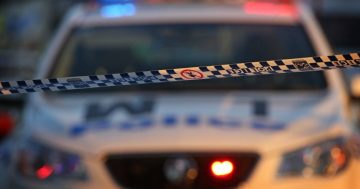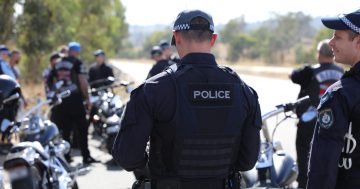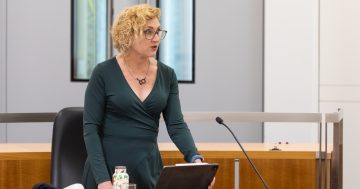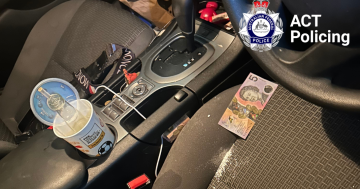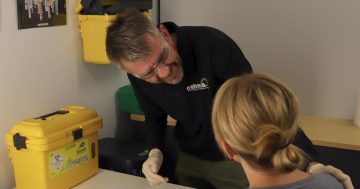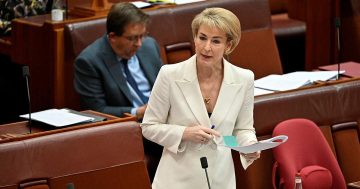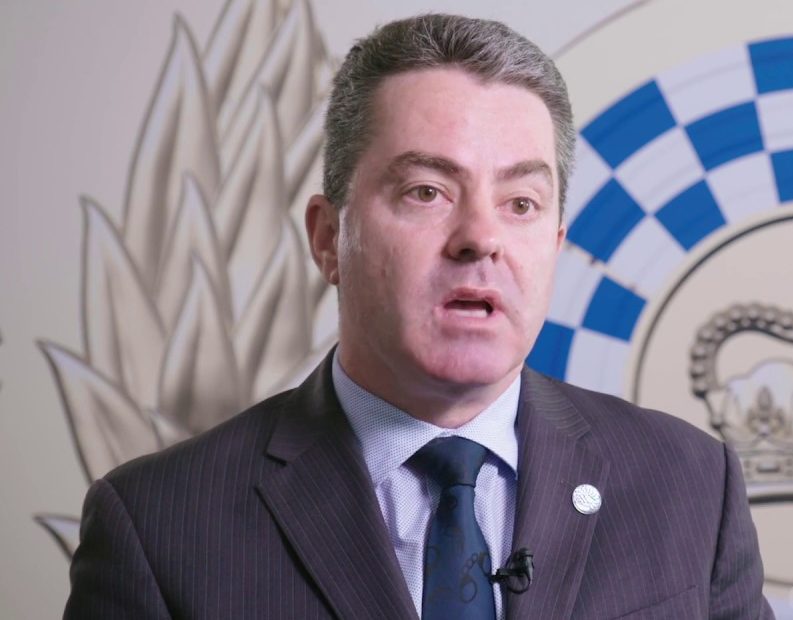
“I think we’ll see organised crime and outlaw motorcycle gangs setting up a lot more in the ACT,” Scott Webber told a Parliamentary inquiry. Photo: Royal Australian Mint.
The decriminalisation of small quantities of drugs in the ACT in October was of “grave concern”, the CEO of the Police Federation of Australia has told a Parliamentary inquiry.
“From a policing point of view, we just think this is an absolute disaster. It’s a sheer folly,” Scott Webber told the Joint Committee on Law Enforcement’s inquiry into Australia’s illicit drug problem.
“It’s going to be a drain on resources, not only policing but the community as a whole. The health system is already struggling. We’ve seen that through COVID. This is just another facet that’s going to put more pressure on the community and damage it.
“There are huge issues in regards to health in the ACT Government and I can only see this adding to the burden.”
Mr Webber told the inquiry that decriminalisation was likely to result in a rise in organised crime in the ACT.
“I think we’ll see organised crime and outlaw motorcycle gangs setting up a lot more in the ACT, and why wouldn’t you?” he said.
“You don’t fly down to Canberra to see the nation’s capital, the art gallery and the museums … you fly down there for a party to get on illicit drugs.”
Representatives from the Australian Federal Police and ACT Policing also expressed concerns about organised crime in evidence given to the inquiry last week.
“While there is an appetite to take drugs at whatever level, there’s always going be an element of organised crime,” Assistant Commissioner of Crime Command Kirsty Schofield said.
“It’s a vulnerability, it’s a market, so even if it’s decriminalised … if they still have the requirement to take drugs within organised crime or people importing drugs, there’s still a market there, so unfortunately, wherever they can exploit it, I believe that they will.”
ACT Policing executive general manager corporate Peter Whowell told the inquiry decriminalisation raised concerns.
“Like my colleagues here and my colleagues who’ve given evidence today … we are concerned about the potential for any change in the policy environment, decriminalisation being one of those, increasing any TSOC [transnational, serious and organised crime] activity.”
Mr Webber was also critical of the ACT Government’s approach to enforcing the new law and said not enough had been done to inform and educate the community ahead of the changes coming into force on 28 October.
“I think a massive outstanding issue is probably the lack of full consultation and education to the community,” he said.
“I mean, I still speak to locals that don’t even know it’s occurring on [sic] 23 October.”
An ACT Health spokesperson told Region the ACT had undertaken “significant work” to ensure the public was well informed about the upcoming changes.
“ACT Health and ACT Policing are working closely together on all elements of implementation of the drug law reform changes,” the spokesperson said.
“Regular meetings occur at multiple levels, and decisions on specific elements are made together, along with input from Canberra Health Services, Justice and Community Safety Directorate, Access Canberra and non-government organisation partners.
“ACT Policing is also working with experts and NGO partners, including the Canberra Alliance for Harm Minimisation & Advocacy (CAHMA) and Alcohol Tobacco and Other Drug Association (ATODA) to develop training focussed on harm minimisation.”
The spokesperson said ACT Health was developing communication material for drug users and the broader ACT community.
“ACT Health will shortly be rolling out a community awareness campaign for the wider community, which will be in addition to the work already undertaken with other directorates, stakeholders and key community groups.”













